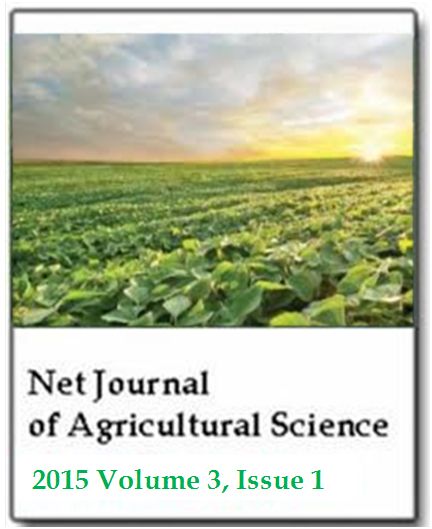Status and trends of deforestation: An insight and lessons from Enugu State, Nigeria
Emeka Nzeh, Eric Eboh and Noble J. NwezeNet Journal of Agricultural Science
Published: February 12 2015
Volume 3, Issue 1
Pages 23-31
Abstract
In recent time, concern on the trends and status of forest and associated deforestation activities in developing countries like Nigeria, Enugu State inclusive, has increased. This concern has prompted a range of researches into the causes and the effects of deforestation by different authors as well as the investigation of the possible economic contributions of this sector to the national growth and development indices. This paper examines the imprint trends and status of deforestation across the Nigerian nation with particular reference to Enugu State. Descriptive statistics was used for data analysis in this research paper. We found out that forest resources of Enugu State are under pressure from urbanisation, infrastructure development, residential construction, population growth, and expansion of agricultural crop cultivation. Evidence of these pressures is the growing degradation of both community and state forest within the country especially in the study area, Enugu State. Therefore, notwithstanding the economic contributions of deforestation through income and employment generation to the state and national GDP, we recommend that there is need for the sustenance of the community and state forests. This is required so that non-timber forest products (NTFPs) and non-wood forest products (NWFPs) which are needed in promoting rural welfare, income and employment generation, urban and rural livelihood sustenance, poverty reduction and sustainable forest management in the state and the country at large can be retained.
Keywords: Non-wood forest products, development, forest, employment, poverty reduction.
Full Text PDF
